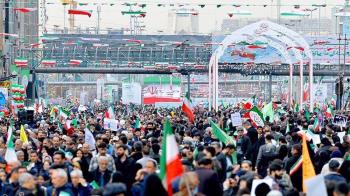Alwaght- The new US administration sanctioned 24 Chinese and Hong Kong officials on Tuesday just before its first talks with China.
The sanctions, which came in line with the US’ response to a security law passed last year criminalizing sedition, secession and subversion against the mainland, were introduced prior to US Secretary of State Antony Blinken's meeting with top Chinese diplomats in Alaska later this week.
The Beijing-proposed bill was passed in May 2020 and drew harsh criticism from some Western governments, particularly the US and the UK, which claim that the law threatens the semi-autonomous stance of the city.
Beijing, however, insists that the new law does not pose a threat to Hong Kong’s autonomy or the interests of foreign investors, noting that it is merely meant to prevent terrorism and foreign interference, which were evident in the violent riots against the government there last year.
On Wednesday, the US State Department released a new list of sanctioned individuals, many of whom had previously been barred by the administration of former president Donald Trump from traveling to the US, along with their family members.
Trump last year signed an executive order to end the preferential economic treatment of the semi-autonomous city to punish China for what he called “oppressive actions” against the former British colony.
Since last October, Washington had sanctioned 10 officials including Hong Kong leader Carrie Lam and Deputy Director of the Hong Kong and Macao Affairs Office Zhang Xiaoming.
The new sanctions target, among others, Wang Chen, a member of the 25-person Politburo, one of China's top decision-making bodies, and Tam Yiu-chung, the only Hong Konger on the committee that drafted the national security law last year.
In a statement on Wednesday, Blinken said the new move was in response to what he referred to as new restrictions introduced by Beijing on democracy in Hong Kong.
China has repeatedly criticized the United States and its allies for their “interference” in the domestic affairs of Hong Kong, China’s global financial hub city.
Last week, Chinese Foreign Ministry spokesman Zhao Lijian said, “Hong Kong is China's Special Administrative Region and its affairs are an integral part of China's internal affairs, which allow no interference by any country, organization or individual.”
Referring to the 46th session of the United Nations Human Rights Council (UNHRC) last week, he said a joint statement by dozens of countries at the forum backed Beijing’s stand on Hong Kong, which he said demonstrates that “facts speak so much louder [than words] and justice will never fail to prevail.”



























